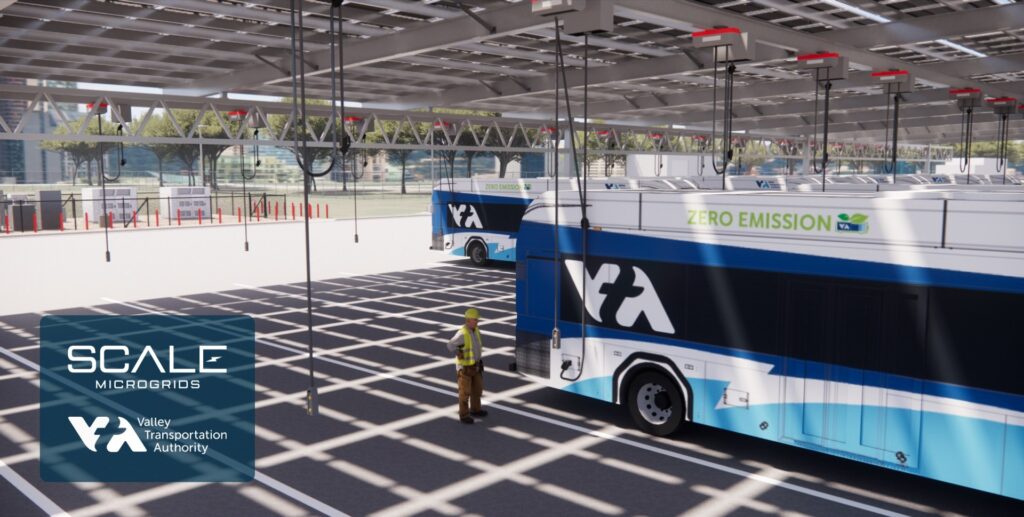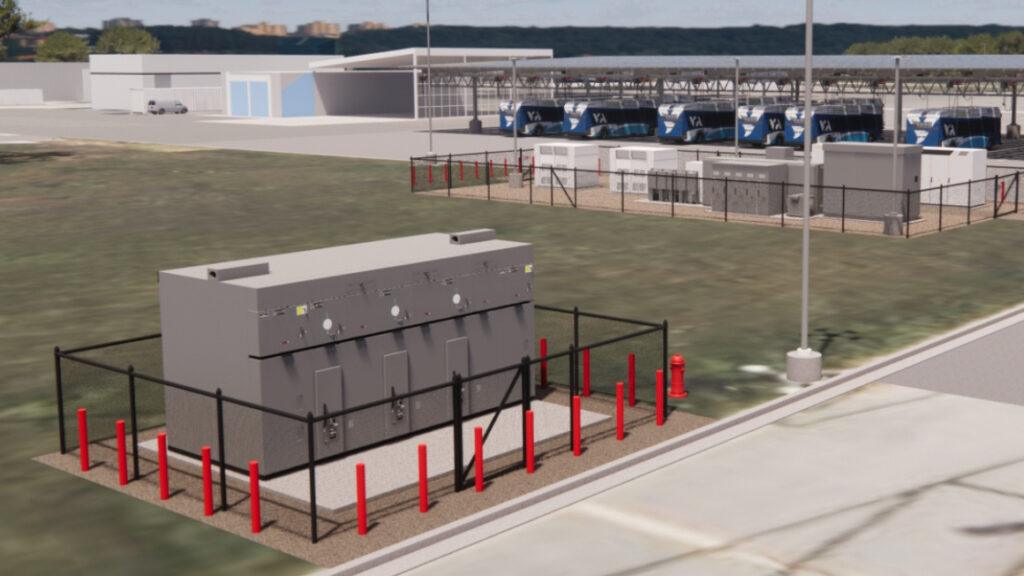Electric Bus Charging Infrastructure Brings Innovation to San Jose
10/8/2025

The Santa Clara Valley Transportation Authority (VTA), San Jose, CA, has broken ground on its Cerone Microgrid Project. The infrastructure will pair bus charging infrastructure with solar panels and a microgrid, which stores electricity onsite in large batteries and can keep buses charged in the event of a major blackout. Scale Microgrids is building the microgrid.
Thirty-five battery-electric buses are expected to be delivered to VTA in 2026, which takes the agency a step closer to meeting the state goal for all California transit agencies to operate only zero-emission fleets by 2040.
“We’re proud to partner with VTA to showcase how microgrids can support their ambitious transit fleet electrification goals,” said Neil Maguire, Scale’s chief technology officer. “By integrating on-site solar and battery storage, our microgrid will help VTA serve the region’s public transit needs while reducing their electricity costs by over a third, cutting carbon emissions by more than 60 percent, and, most importantly, ensuring reliable operations to continue to serve the community even during power outages on the grid.”
Automated smart charging will occur overnight, allowing VTA to minimize electrical costs and have the buses ready for service each morning. To meet the agency’s increased need for electricity, PG&E is upgrading the electrical capacity of the Cerone Division by three megawatts.

Lehigh University’s Institute of Cyber Physical Infrastructure, Bethlehem, PA, is a leading research entity in the smart grid space, partnering with VTA to support the research and planning of the electric fleet rollout.
“Our researchers and students have been working alongside VTA to develop ways to use local energy storage and solar generation, schedule bus charging, implement routes, assign bus drivers, and coordinate with the main grid,” said Shalinee Kishore, chair, Iacocca Institute at Lehigh University, and professor of electrical and computer engineering, and director of Lehigh’s Center for Advancing Community Electrification Solutions.
VTA is projected to save approximately $1.2 million a year on energy costs.